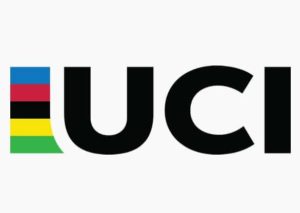
This document sets out a framework for the UCI’s sustainability strategy to develop environmental and social objectives.
Click here to download the Policy






The IOC is committed to building a better world through sport. As outlined in its Sustainability Strategy, which underpins to a large extent this Supplier Code, the IOC follows a responsible sourcing approach by which the sourcing of our products and services is carried out with environmental, social and ethical issues in mind. Through this approach, the IOC aims to use its influence to promote higher levels of environmental and social responsibility across its value chain.
This Supplier Code outlines the IOC’s minimal requirements from its suppliers − defined as any third party providing or intending to provide goods and services to the IOC.






This sourcing code was created by Tokyo 2020 Olympic and Paralympic Games, to ensure the sustainability as well as economic rationality of all products, services, etc. procured by the Tokyo Organising Committee of the Olympic and Paralympic Games (Tokyo 2020 Organising Committee) during the preparation and operating phases of the Tokyo 2020 Olympic and Paralympic Games. It also clarifies the criteria and operating methods by which such products, services, etc. shall be procured. The sourcing code also defines the individual criteria for the sourcing of timber, agricultural products, livestock products, fishery products, paper, and palm oil.





















AGENDA 2063 is Africa’s blueprint and master plan for transforming Africa into the global powerhouse of the future. It is the continent’s strategic framework that aims to deliver on its goal for inclusive and sustainable development and is a concrete manifestation of the pan-African drive for unity, self-determination, freedom, progress and collective prosperity pursued under Pan-Africanism and African Renaissance

The African Youth Charter protects young people from discrimination and ensures freedom of movement, speech, association, religion, ownership of property and other human rights, while committing to promoting youth participation throughout society.












The World Federation of the Sporting Goods Industry (WFSGI) was formed in 1978 to promote the world’s sporting activities, to standardise the size of equipment and the rules of sport, to improve the standards of quality for sporting goods and to promote responsible and sustainable practices in sporting goods internationally.
Today the WFSGI consists of a diverse global membership including brands, manufacturers, retailers and national & regional sports federations (“members”).
The purpose of the Code is to guide WFSGI members in the standards and practices expected in the workplaces that they operate or contract from.





The Global Reporting Initiative (known as GRI) is an international independent standards organization that helps businesses, governments and other organizations understand and communicate their impacts on issues such as climate change, human rights and corruption.
Under increasing pressure from different stakeholder groups – such as governments, consumers and investors – to be more transparent about their environmental, economic and social impacts, many companies publish a sustainability report, also known as a corporate social responsibility (CSR) or environmental, social and governance (ESG) report. GRI’s framework for sustainability reporting helps companies identify, gather and report this information in a clear and comparable manner. First launched in 2000, GRI’s sustainability reporting framework is now the most widely used by multinational organizations, governments, small and medium enterprises (SMEs), NGOs and industry groups in more than 90 countries. In 2017, 63 percent of the largest 100 companies (N100), and 75 percent of the Global Fortune 250 (G250) reported applying the GRI reporting framework.
The most recent of GRI’s reporting frameworks are the GRI Standards, launched in October 2016. Developed by the Global Sustainability Standards Board (GSSB), the GRI Standards are the first global standards for sustainability reporting and are a free public good. In contrast to the earlier reporting frameworks, the GRI Standards have a modular structure, making them easier to update and adapt.
The GRI was formed by the United States-based non-profits Ceres (formerly the Coalition for Environmentally Responsible Economies) and Tellus Institute, with the support of the United Nations Environment Programme (UNEP) in 1997. It released an "exposure draft" version of the Sustainability Reporting Guidelines in 1999, the first full version in 2000, the second version was released at the World Summit for Sustainable Development in Johannesburg—where the organization and the guidelines were also referred to in the Plan of Implementation signed by all attending member states. Later that year it became a permanent institution. In 2002 GRI moved its secretariat to Amsterdam, Netherlands. Although the GRI is independent, it remains a collaborating centre of UNEP and works in cooperation with the United Nations Global Compact.
Global sport organisations such as the International Olympic Committee rely on GRI to measure their environmental impact.

LEED (Leadership in Energy and Environmental Design) is the most widely used green building rating system in the world. Available for virtually all building types, LEED provides a framework for healthy, highly efficient, and cost-saving green buildings. LEED certification is a globally recognized symbol of sustainability achievement and leadership. Millions of people are living, working and learning in LEED-certified buildings around the world.

